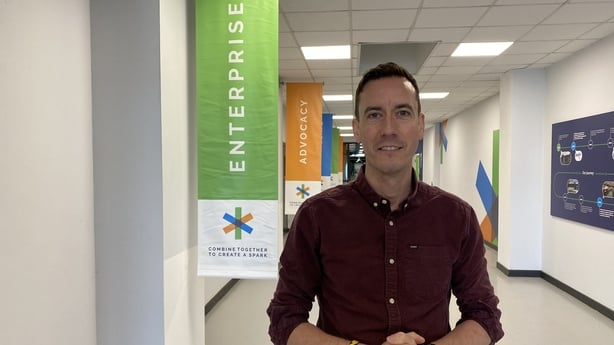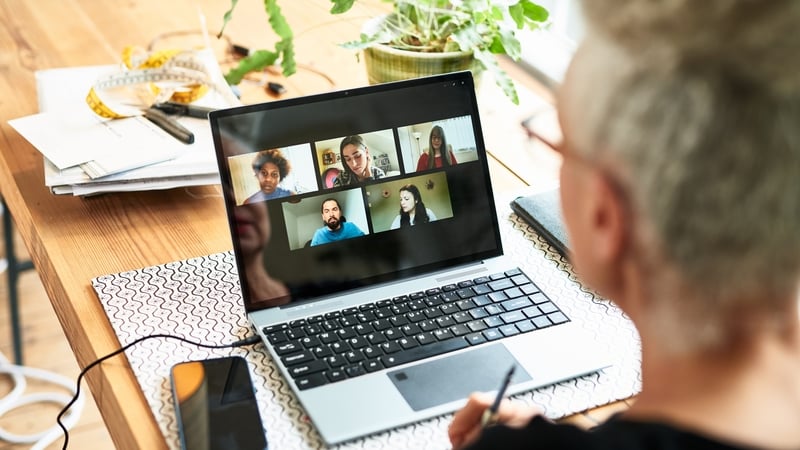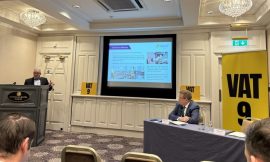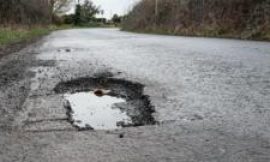The way we work changed dramatically when the Covid 19 pandemic hit Ireland five years ago.
The workplace revolution began on March 27, 2020, when then Taoiseach Leo Varadkar outlined measures to tackle the virus.
“Everybody must stay at home in all circumstances except for the following situations: To travel to and from work for the purposes of work, only when the work is an essential health, social care or other essential service that cannot be done from home.”
The restrictions were supposed to last two weeks; they lasted much longer and the consequences were far-reaching, long lasting and continue to this day.
Teachers, lecturers, accountants, architects, secretaries and CEOs, started working remotely from home.
Shares in Zoom surged.
Damien McCarthy is managing director of HR consultancy, HR Buddy. “It was an incredible transition,” he said.
“Most people and most workplaces had no experience, no expertise, and we were all learning together. We were all on Zoom and trying to figure out who was on mute. That’s where we started from.”
Des McCullough is business development manager with Impact Labelling. Like thousands of other workers, the kitchen table became his desk; the kitchen his office.
“Pre-Covid I was mostly office based. I suppose Covid gave a new dimension to working life. The idea of working at home, I think for a lot of people was a romantic notion.”
The reality was very different. “I think you need structure; you certainly need infrastructure. Something as simple as broadband, even though the Government will tell you it’s everywhere, it’s not,” he said.
Ireland’s workforce transitioned to remote working at a greater rate than any other in the EU, with a quarter of workers working from home most of the time by 2022.
Many others chose to work in remote working hubs.
The Government developed the National Hub Network, facilitated by Connected Hubs, and there are now 360 hubs dotted across the country.
We need your consent to load this rte-player contentWe use rte-player to manage extra content that can set cookies on your device and collect data about your activity. Please review their details and accept them to load the content.Manage Preferences
Niall O’Callaghan is chief executive of Limerick Enterprise Development Partnership, a not-for-profit charity that invests in community projects. LEDP set up Spark Hub three years ago.
“Government funds were being distributed through the Connected Hubs fund. We seized the opportunity to apply for funding through that to create a space within the building that would faciliated remote working,” he said.
“We felt that there wasn’t a remote working space in this locality; equally we wanted to provide something that was cheap for people to utilise within the building so it’s very much a not-for profit activity.”
Spark Hub has all the facilities you would expect including 30 desks, WiFi, free parking and a restaurant on campus.
“We are close to the motorway so whether you are coming from Shannon, Nenagh, Charleville or Adare, we’re in the middle of that connection point, which allows people who are stopping off in Limerick to use the hub on a regular basis,” Mr O’Callaghan said.
Des McCullough regularly works from Spark Hub.
“The infrastructure that Niall and the lads have built here is absolutely fabulous – broadband, parking and human interaction. I choose to come here; it’s good for headspace.”
While people like Mr McCullough like the social interaction in the workplace, a new generation entered the world of work post-pandemic and struggled to adapt.
“No new generation coming into the workforce doesn’t create a ripple effect,” said Julie Ryan, deputy managing director with Harvest Resources.
A generation of graduates studied remotely and are the first true digital natives.
“This idea that we are entering a new world of work, and it’s hybrid, well that’s not new to them. That’s not change to them, that’s the norm,” Ms Ryan said. “They picked up very strong digital acumen, skills and capabilities but the human to human contact has definitely been sacrificed as a result of that.”
A study of students, graduates and employers by Harvest Resources revealed a gap in expectations between Generation Z and employers.
“What we’re hearing from employers is that they are finding it a little bit tricky to pick up on social nuance and social skills that some of us just have, that ability to read body language and social cues is really limited for many entering the world of work,” she said.
Employees – young and old – enjoy the flexibility of remote and hybrid working. It is a perk, that has now become an expectation.
The share of Irish job postings mentioning remote or hybrid work is “as high as ever”, according to a recent trend report from job site Indeed.
Despite several high-profile return-to-office mandates including Amazon and Dell, the report suggests that remote and hybrid work is not going away any time soon, with the overall share of remote and hybrid roles at more than 17%.
That said, the push back to the office is good news for the Dublin office market which is set for a significant recovery this year, driven by falling vacancy rates, and surging demand for premium office spaces.
A report by Savills Ireland last week revealed prime office rents in Dublin’s Central Business District have already begun to recover, rising 4% year-on-year.
While there demand for offices is increasing, remote working hubs are seeing a decline in demand.
Spark Hub at LEDP had up to 80% occupancy in its first 12 months, but occupancy has dropped “quite significantly” in the past year.
“I think there are probably a couple of factors to explain it,” said LEDP chief executive. “The increase in the fibre broadband rollout; that has definitely had an impact. When we initially opened there were still a lot of people who had not got fibre, they needed some reliable broadband to do their job so it was an obvious solution to come find a remote working space.

“There has obviously been a lot of change in respect of corporates and their approach to remote working, and their demands that they are putting on employees,” Mr O’Callaghan said. “So we see that a lot here, where employees that would have been based in Dublin and living in Limerick, are now being told they need to come back to the office on a more regular basis, so I think that has definitely had an impact in the last 12 months as well.”
Damien McCarthy from HR Buddy said remote and hybrid working is here to stay. “Absolutely,” he said. “It’s never going to go back to where it was. Remote and hybrid working in most circumstances is a win win situation. It helps the employee with work life balance and flexibility.”
He said it benefits employers by widening the talent pool, and boosting staff retention which is important in a tight labour market.
“If Covid never came about, where would we be now?” Mr McCarthy said. “I’d imagine that an awful lot of people would still be going into a workplace, an office 5 days a week.”
The Covid-19 pandemic was a destructive and traumatic event, but it led to changes in the way we work that are widely regarded as positive.
“We should give each other credit. It’s been an amazing journey,” Mr McCarthy said. “There’s no doubt that workplaces are in a better place. We have a fully employed labour market. We dealt with this quite well and I think we should congratulate ourselves on that.
“We would be better prepared [if there was another pandemic], but I think we’re still evolving. If you go through anything once, you gain a bit of experience. Hopefully it doesn’t happen, but if it does, I think we are better prepared.”




